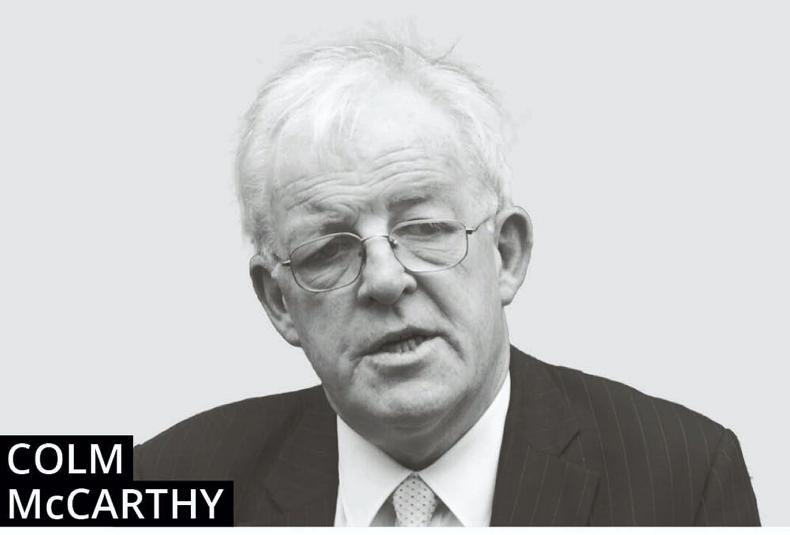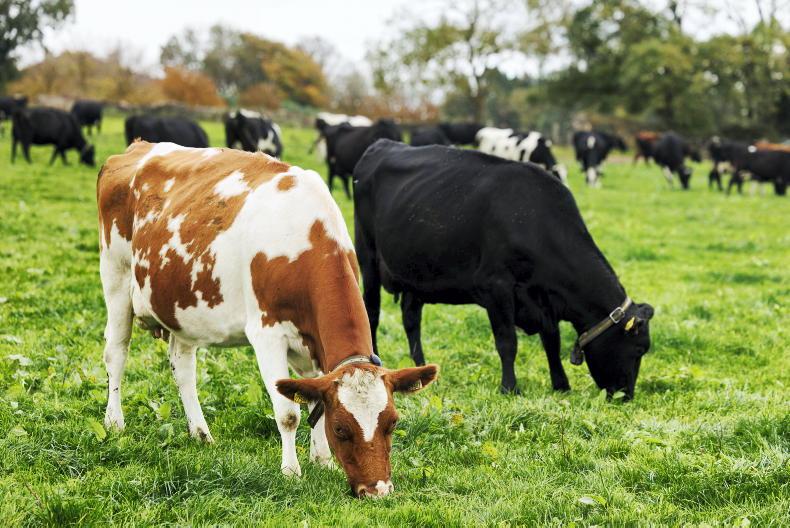A few short months ago, the news media obsessed about two issues - the absence of international action on climate change and the United Kingdom’s withdrawal from the European Union.
Remember the Extinction Rebellion protests that clogged the world’s cities and the newspaper front pages last autumn? And the marches, up to a million strong, in London opposing Brexit?
International agreement on climate action has been missing for four decades
Forgotten, but not gone, neither issue is resolved and they will re-emerge as the COVID-19 emergency recedes. It may take the development of a vaccine, or a therapeutic treatment for the virus, to reach that point and it may not come soon, but any return to normality means the restoration of these disremembered headaches to the policy agenda.
Need for concerted action
The climate and COVID-19 crises have something in common. Both have revealed a need for concerted international action - the planet has just one atmosphere and the virus knows no frontiers.
International agreement on climate action has been missing for four decades and the response to the pandemic has been left to national authorities, blaming one another and fighting over scarce supplies.
Brexit too looks like a revolt against European co-operation, a dive into national exceptionalism.
Consistent US response
The response of US president Donald Trump on all three issues has been consistent. A keen supporter of Brexit and indifferent to the break-up of the European Union, Trump described climate change just a few years ago as a hoax and tweeted "The concept of global warming was created by and for the Chinese in order to make US manufacturing non-competitive."
He has recently fed conspiracy theorists who peddle the notion that the virus was released deliberately from a Chinese lab.
His most recent contribution has been to withdraw US funding from the World Health Organisation, an offshoot of the United Nations already dependent for a large portion of its budget on private donations, notably from the Bill and Melinda Gates Foundation.
Tánaiste Simon Coveney described Trump’s decision as "indefensible" and promptly quadrupled Ireland’s 2020 subscription to €9.5m. Bill Gates remarked that “halting funding for the World Health Organisation during a world health crisis is as dangerous as it sounds” and pledged an extra $150m.
Internationalism
There has been a retreat from internationalism around the world since the global financial crisis and it is perverse that the United States should be in the lead.
The modern international order is an American creation, principally the handiwork of the Truman administration in the years after the Second World War which saw the creation of the United Nations, the International Monetary Fund and the World Bank.
It is not an accident that these organisations are headquartered in New York and Washington.
Just why Trump dislikes the EU and supports Brexit, a purely British initiative and largely a European problem, is hard to fathom. Support for European integration has been a constant in US foreign policy since the 1950s.
Trump’s performance on the COVID-19 epidemic looks like straightforward blame-shifting
On climate change, the US is not the only country to seek a free ride on the efforts of others and most countries outside Europe have done very little.
Trump’s performance on the COVID-19 epidemic looks like straightforward blame-shifting, a deflection of criticism for the sluggish performance of the US public health system in responding to the crisis.
The good news is that it may cost him re-election in November: recent polls show that the Democrats’ nominee Joe Biden is ahead and the public has been registering disapproval of Trump’s performance on COVID-19.
When climate change comes back on the policy agenda, a Biden presidency is likely to move the USA closer to Europe and China, a pre-requisite for coherent international action.
Brexit extension
The UK government must decide before the end of June whether to seek a further extension to its transition period out of the European Union, of which it is now an ex-member.
Unless it does so, transition ends on 31 December next and failing the conclusion of a free trade agreement by that date, there will be an automatic implementation of trade barriers between the UK and its erstwhile European partners including Ireland.
It was always difficult to see the negotiations conclude successfully on that timetable and COVID-19 has ensured that little progress has been made.
The UK government continues to insist that no extension to transition will be sought
Both UK prime minister Johnson and EU negotiator Michel Barnier have been afflicted with the virus and there has been a hiatus in the negotiations.
Regardless, the UK government continues to insist that no extension to transition will be sought, in which case there will be a form of no-deal crash-out eight months from now.
Paschal Donohoe’s budget last October contained a provision of €1.2bn for the extra cost of a no-deal outcome, an amount since re-allocated to help plug the huge fiscal gap emerging as a result of COVID-19. It may be needed for its original purpose.
Read more
Coronavirus response will shape future of EU
Coronavirus has to trigger Brexit rethink
A few short months ago, the news media obsessed about two issues - the absence of international action on climate change and the United Kingdom’s withdrawal from the European Union.
Remember the Extinction Rebellion protests that clogged the world’s cities and the newspaper front pages last autumn? And the marches, up to a million strong, in London opposing Brexit?
International agreement on climate action has been missing for four decades
Forgotten, but not gone, neither issue is resolved and they will re-emerge as the COVID-19 emergency recedes. It may take the development of a vaccine, or a therapeutic treatment for the virus, to reach that point and it may not come soon, but any return to normality means the restoration of these disremembered headaches to the policy agenda.
Need for concerted action
The climate and COVID-19 crises have something in common. Both have revealed a need for concerted international action - the planet has just one atmosphere and the virus knows no frontiers.
International agreement on climate action has been missing for four decades and the response to the pandemic has been left to national authorities, blaming one another and fighting over scarce supplies.
Brexit too looks like a revolt against European co-operation, a dive into national exceptionalism.
Consistent US response
The response of US president Donald Trump on all three issues has been consistent. A keen supporter of Brexit and indifferent to the break-up of the European Union, Trump described climate change just a few years ago as a hoax and tweeted "The concept of global warming was created by and for the Chinese in order to make US manufacturing non-competitive."
He has recently fed conspiracy theorists who peddle the notion that the virus was released deliberately from a Chinese lab.
His most recent contribution has been to withdraw US funding from the World Health Organisation, an offshoot of the United Nations already dependent for a large portion of its budget on private donations, notably from the Bill and Melinda Gates Foundation.
Tánaiste Simon Coveney described Trump’s decision as "indefensible" and promptly quadrupled Ireland’s 2020 subscription to €9.5m. Bill Gates remarked that “halting funding for the World Health Organisation during a world health crisis is as dangerous as it sounds” and pledged an extra $150m.
Internationalism
There has been a retreat from internationalism around the world since the global financial crisis and it is perverse that the United States should be in the lead.
The modern international order is an American creation, principally the handiwork of the Truman administration in the years after the Second World War which saw the creation of the United Nations, the International Monetary Fund and the World Bank.
It is not an accident that these organisations are headquartered in New York and Washington.
Just why Trump dislikes the EU and supports Brexit, a purely British initiative and largely a European problem, is hard to fathom. Support for European integration has been a constant in US foreign policy since the 1950s.
Trump’s performance on the COVID-19 epidemic looks like straightforward blame-shifting
On climate change, the US is not the only country to seek a free ride on the efforts of others and most countries outside Europe have done very little.
Trump’s performance on the COVID-19 epidemic looks like straightforward blame-shifting, a deflection of criticism for the sluggish performance of the US public health system in responding to the crisis.
The good news is that it may cost him re-election in November: recent polls show that the Democrats’ nominee Joe Biden is ahead and the public has been registering disapproval of Trump’s performance on COVID-19.
When climate change comes back on the policy agenda, a Biden presidency is likely to move the USA closer to Europe and China, a pre-requisite for coherent international action.
Brexit extension
The UK government must decide before the end of June whether to seek a further extension to its transition period out of the European Union, of which it is now an ex-member.
Unless it does so, transition ends on 31 December next and failing the conclusion of a free trade agreement by that date, there will be an automatic implementation of trade barriers between the UK and its erstwhile European partners including Ireland.
It was always difficult to see the negotiations conclude successfully on that timetable and COVID-19 has ensured that little progress has been made.
The UK government continues to insist that no extension to transition will be sought
Both UK prime minister Johnson and EU negotiator Michel Barnier have been afflicted with the virus and there has been a hiatus in the negotiations.
Regardless, the UK government continues to insist that no extension to transition will be sought, in which case there will be a form of no-deal crash-out eight months from now.
Paschal Donohoe’s budget last October contained a provision of €1.2bn for the extra cost of a no-deal outcome, an amount since re-allocated to help plug the huge fiscal gap emerging as a result of COVID-19. It may be needed for its original purpose.
Read more
Coronavirus response will shape future of EU
Coronavirus has to trigger Brexit rethink









SHARING OPTIONS